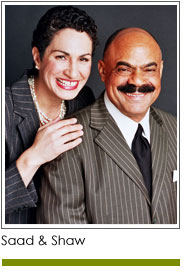 Nonprofit organizations often secure the services of fundraising related consultants and contractors to support operations and growth. Services may be needed to supplement the expertise of current staff, to add specific skill set for a limited amount of time, or because it is more cost effective to contract for services than to hire full-time employees.
Nonprofit organizations often secure the services of fundraising related consultants and contractors to support operations and growth. Services may be needed to supplement the expertise of current staff, to add specific skill set for a limited amount of time, or because it is more cost effective to contract for services than to hire full-time employees.
Services that could be put out to bid include direct mail, special event design and management, proposal writing, feasibility studies, campaign counsel, online giving, marketing and advertising, prospect research, executive and employee search services, technology, training services and staff development, premiums and promotional materials, and phonathons.
In all cases a written request for proposals (RFP) helps facilitate a successful engagement.
While it takes time to craft an RFP there are many benefits to be achieved. First, the process will force you and your team to think through what you want to achieve from engaging an outside firm. It serves as a basis for the scope of work that will guide the firm’s work and your evaluation of it. You will have a better idea of the amount of time and resources required by your organization to support the work of the contractor or consultant. You will have created a “fair playing field” for those who are competing for your business, and a basis from which your team can evaluate proposals.
Getting started. Convene a team to create the RFP and establish a method of evaluation. Most RFPs include a brief organizational overview and history; a project description, budget, and timeframe; requirements related to experience, capacity, and technology; and submission deadlines and dates by which decisions will be made. Evaluation includes determining, for example, the importance of methodology, experience, and price. Are they equally weighted, or are methodology and experience more important than price? How will “points” be assigned? On a scale of 100, would each receive 33.3 points, or would 40 points be assigned to methodology, 50 to experience and 10 to price? Scoring RFPs reduces subjectivity, provides management with a rationale for contracting, and provides vendors with the opportunity to learn how their proposal rated and why.
Regardless the size of your organization, the RFP process provides an opportunity to evaluate proposals on an “apples-to-apples” basis. If you are not required to issue an RFP and have already decided which vendor you want to work with, think long and hard before issuing one. Staff, board members, volunteers and vendors all invest time and resources in the RFP process: a common complaint is that the process is a “sham,” as a decision had been made in advance.
Finally, the RFP process can diminish conflicts of interest and contribute to transparency and accountability. It is another way to strengthen the health of your nonprofit.
Copyright 2014 – Mel and Pearl Shaw
Mel and Pearl Shaw position nonprofits, colleges and universities for fundraising success. For help with your campaign visit www.saadandshaw.com or call (901) 522-8727.










